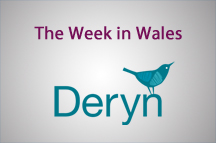 The row over the The Draft Wales Bill rumbled on this week, following a meeting between the First Minister and the Secretary of State for Wales, and a debate in the Senedd. There are two main areas of consternation - a complex issue regarding consent, and the lengthy number and detail of reserved powers.
The row over the The Draft Wales Bill rumbled on this week, following a meeting between the First Minister and the Secretary of State for Wales, and a debate in the Senedd. There are two main areas of consternation - a complex issue regarding consent, and the lengthy number and detail of reserved powers.
In moving to a reserved powers model, the Secretary of State has included in the Bill an ongoing system of consent, so that every Bill the Assembly seeks to pass could potentially be vetoed by the Secretary of State. The consent not only relates to the legal competency of the Assembly, but also tests of necessity and expediency, which would suggest a step backwards in the powers currently held in Cardiff Bay.
Concern has been raised by politicians of all parties, including the Presiding Officer, along with academics and lawyers, and this week event the Leader of the Welsh Conservatives, Andrew RT Davies, expressed concerns over its content.
Mr Davies said “It’ll serve no-one any good whatsoever if all we end up doing is muddying the waters and ending up with a dog’s dinner of a Bill”.
 His comments have been seen as an attempt to calm the waters after recent robust remarks from Stephen Crabb and Carwyn Jones following the publication of the Bill over the last few weeks. It is now up to MPs to see if a consensus can be found as the Bill moves through the House of Commons. If not, we could see a situation where the Assembly rejects the new Bill.
His comments have been seen as an attempt to calm the waters after recent robust remarks from Stephen Crabb and Carwyn Jones following the publication of the Bill over the last few weeks. It is now up to MPs to see if a consensus can be found as the Bill moves through the House of Commons. If not, we could see a situation where the Assembly rejects the new Bill.
In other news, the Health Minister, Mark Drakeford, announced that the waiting time for assessment and treatment by local primary mental health support services is to be cut from 56 days to 28. Health boards have until next March to hit the new target. The Welsh Liberal Democrats claimed that the targets would not apply to services accessed by young mental health patients, or to psychological therapy services.
An announcement by the Transport Minister Edwina Hart AM about a possible third crossing over the Menai Strait was welcomed by Plaid Cymru’s AM for Ynys Môn, Rhun ap Iorwerth. But it was infrastructure projects further south that were highlighted by the Finance Minister Jane Hutt AM in a letter this week to the Chancellor George Osborne MP ahead of his Spending Review and Autumn Statement later this month. She called on him to re-think his plans for further cuts in public expenditure, and stressed the need for capital investment in projects like the South East Wales Metro transport system and the Swansea Bay Tidal Lagoon to boost Wales’s economic recovery.
 Improving the economic and environmental well-being of Wales is the one of the core aims of the Future Generations (Wales) Act which became law earlier this year, and this week saw the appointment of the first Future Generations Commissioner. The appointment of former Labour councillor and Special Adviser, Sophie Howe, has proved controversial and both Plaid Cymru and the Welsh Conservatives complained about the decision. The appointments panel, however, was made up of all parties, so the challenge was difficult to sustain.
Improving the economic and environmental well-being of Wales is the one of the core aims of the Future Generations (Wales) Act which became law earlier this year, and this week saw the appointment of the first Future Generations Commissioner. The appointment of former Labour councillor and Special Adviser, Sophie Howe, has proved controversial and both Plaid Cymru and the Welsh Conservatives complained about the decision. The appointments panel, however, was made up of all parties, so the challenge was difficult to sustain.














